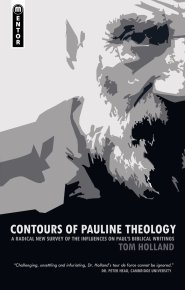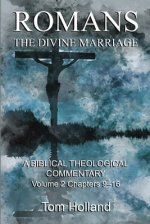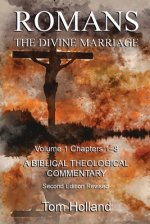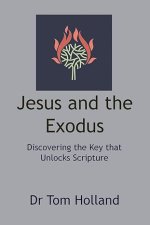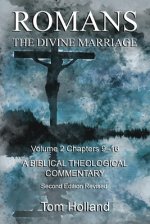ECEden Customer
14 years ago
Average rating of5.0
'Contours of Pauline Theology' is something of a break-through in Pauline Scholarship. It is a very important book. Holland spent many years doing a PhD studying Paul, the fruit of which has found its way into 'Contours'. During his studies, Holland was appalled to find that so many interpreters of Paul have missed the essence of the apostle's thinking. So what is Holland trying to do, specifically? Well, really, Holland has attempted to hammer home one main, but vital point for interpreting Paul (and actually the whole NT). And it is very simply this: Paul was thoroughly Jewish in his thinking and in his writings; he lived and breathed the OT Scriptures. This essential point is actually quite revolutionary in modern scholarship. Generally, most interpreters of Paul believe (at least in practice) that Paul brought some Hellenism (Greek thinking) into his teachings. It is believed that Paul did this to make the message of the gospel more applicable to the Gentiles. So, for example, the 'Armour of God' passage in Ephesians 6 has been interpreted as if Paul was looking at a Roman solider as he was writing the letter. It is generally missed that Paul had the OT Scriptures in mind as he wrote this part of his letter. Holland believes that this kind of interpretation of Paul's writings is very incorrect. Holland affirms that if Paul did this, then he changed the message of Jesus, whose own message was thoroughly Jewish and entirely rooted in the OT writings. This central point can be broken down into two other major points which Holland wants to make to prove his case. They are as follows. The first point is that the Exodus, with a special emphasis on the Passover, is a model which controls the thinking of how Paul interprets the work of Messiah. For example, Paul sees Messiah as 'the Prince' in Ezekiel's vision of the temple, who offers sin offerings on the Passover (Eze 45:17-24). Also, Paul can write: Christ our Passover is sacrificed (1 Cor 5:7). In other words, Paul was not a 'proof-text' theologian: he was a biblical theologian, thoroughly rooted in the writings of the OT. Paul's statements spring from his knowledge of the OT, not his Hellenistic surrounds. Paul interpreted the events of Messiah's life through the lens of the OT writings and specifically the Exodus and the Passover which accompanied it. This is not just the case with Paul either; scholars have come to realise that this paradigm controls much of John's interpretation concerning Messiah. This vital point has been ignored in exegesis for far too long. Of course, if Paul were entirely Jewish and was a man who sought to bring the teachings of the OT to the Gentiles, then this would be very much expected. The most important event in Jewish history was the Exodus and the Passover. The second point, which follows from Paul's OT heritage, is that he has a very corporate mindset. This is a very key point, because Jewish thinking was corporate; Greek thinking was individualistic. If Paul's letters prove to have a corporate focus, then much re-interpretation is needed concerning various passages of the NT, such as Romans 6-8, how Paul views baptism, the work of the Holy Spirit, etc. This has been generally missed by scholars, commentators and preachers for centuries and they have rather opted for individualistic interpretations, when Paul is thinking rather in corporate terms. An example of this is Romans 6:6, the body of sin. Is this individualistic, or corporate? Holland suggests it is corporate, meaning 'the body of Satan': unredeemed humanity under the dominion of Satan. How does Holland go about presenting his findings? He introduces each section with great clarity and then notes the work of scholar after scholar, to show that he is fully familiar with the work of others beside himself. He then takes their work much further. Each section contains a good look at the biblical text, followed by an appropriate conclusion (sometimes including pastoral implications). His exegesis of biblical texts is second to none. Holland is an exegete whose focus is very much upon context: his focus is on the big picture of God's redemptive program, as Paul's was. In summary, Holland's scholarship is an excellent model to follow and Holland has produced a book which is both theologically sound and powerful to read. Most importantly, it can be noticed as one reads 'Contours' that Holland is no mere scholar: he is mainly a follower of Paul's Messiah. 'Contours' is a great achievement of a very dedicated man who has been truly seeking to understand the way Paul thinks and writes and consequently the way the apostle understands the interpretation of the New Covenant. The reward for reading 'Contours' is a far better understanding of how Paul (and the other NT writers) interpreted the OT Scriptures and the work of Messiah which fulfils them all.
Trustpilot



